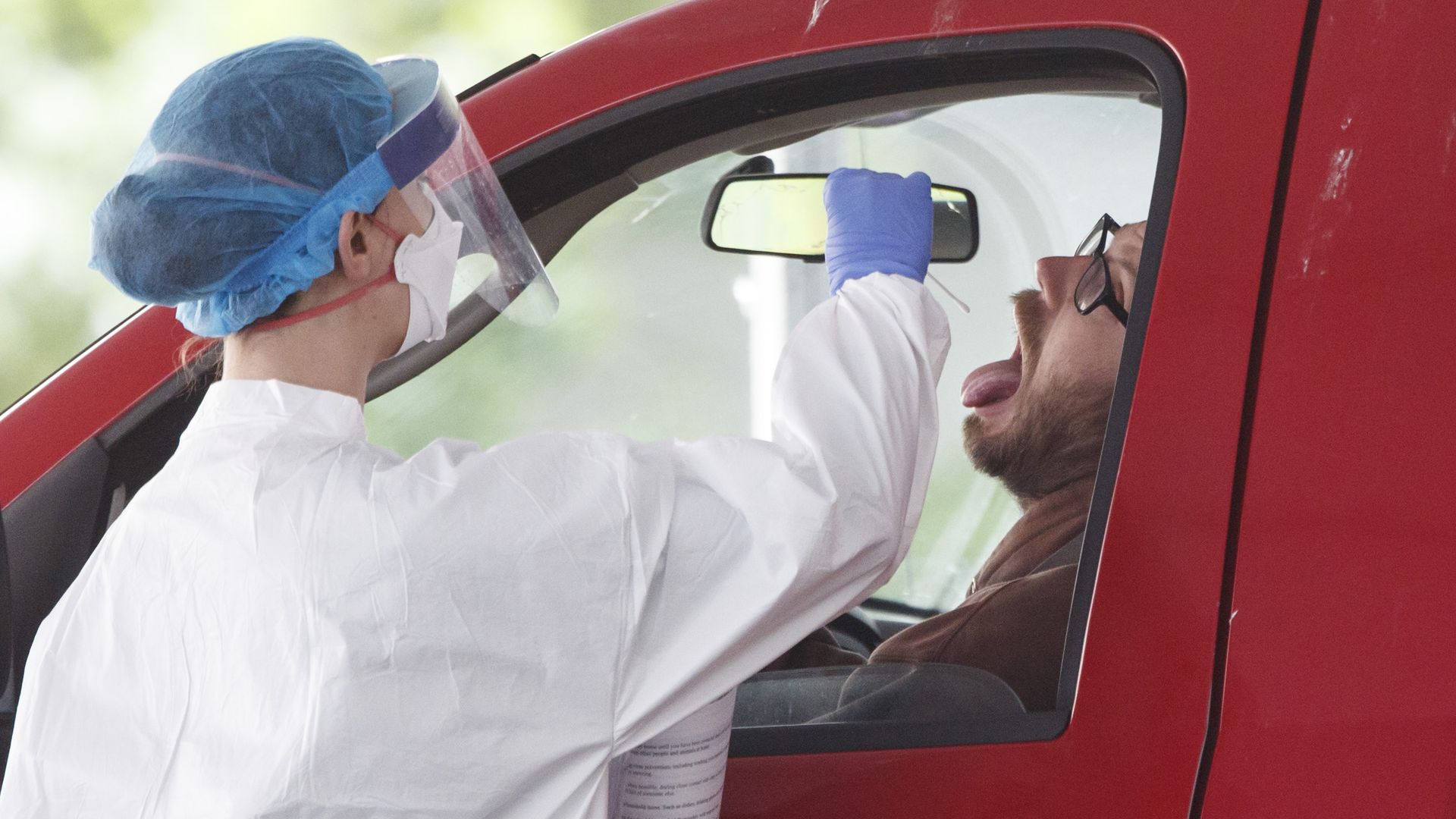Google veterans launch nonprofit to help fight coronavirus
Add Axios as your preferred source to
see more of our stories on Google.

Photo: Xinhua/Ting Shen via Getty Images
A team of Google veterans and others is launching the nonprofit CVKey Project to help communities restart amid the coronavirus pandemic. Its centerpiece, for now, is an app to let venues assess the health risk a particular person poses and whether to admit them.
Why it matters: There are a lot of ideas on how best to store data about coronavirus risk and exposures, but privacy concerns abound as well.
Details:
- CVKey’s app asks people about any symptoms, among other questions. Based on their responses, it generates a QR code indicating whether they’re safe to enter a particular place, based on that location’s policies rather than any top-down criteria from CVKey.
- However, the health data behind the QR code stays on the device, CVKey says, to ensure privacy. The app doesn’t store data in the cloud, nor does it access location data.
- CVKey is a mostly volunteer effort, led by Brian McClendon, who helped start Keyhole (the company that became Google Maps), and with a lot of ex-Googlers lending their skills.
What he's saying: "We don't want to sacrifice our civil liberties or compromise privacy in the rush to reopen," McClendon said in a statement.
- After leaving Google, McClendon led Uber's mapping effort from 2015–2017 before moving back to his native Kansas, where he is active in politics and ran unsuccessfully as a Democrat for Kansas secretary of state.
The big picture: Even assuming the privacy issues are taken care of, the criteria for determining whether someone is a risk or not remain in flux.
- Health officials, for example, think — but don't know for sure — that those who have been sick with COVID-19 have some amount of immunity to reinfection.
- And many people with the disease have few or no symptoms, meaning the app might grade them as low-risk even though they can still spread the disease.
What's next: McClendon said CVKey will adapt as knowledge about the coronavirus improves and also plans over time to add more apps and features, including exposure notification. The group is also soliciting additional volunteers.
Go deeper: Big Tech moves into government vacuum on coronavirus
